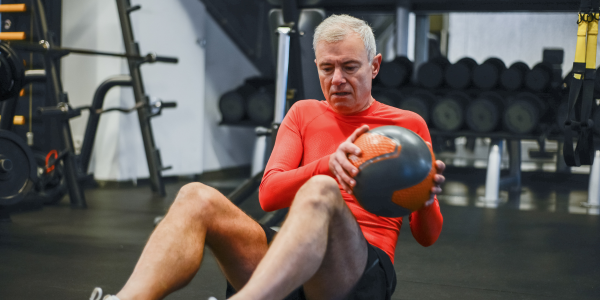Over 50 And Going Strong
By Julian Mokhtar

Hello, gentlemen, and welcome to Uncle / Atok world. Up until a few decades ago, being over 50 was seen as getting old, if not actually old. That view came with the assumption that it was the beginning of a slow slide into degeneration, physical weakening, declining health, infirmity and mental decline. That began to change by the late 1980s and early 1990s with the increase of average life expectancy. The image of a 60-year old grandpa with a walking stick was soon replaced with that of a fit and healthy older man living a fulfilling life. That former image was derived from the modern industrial society when the majority of workers did repetitive tasks requiring little physical effort, particularly in sedentary office work. With the rise of mechanisation and technology, most of us began to move less, and yet still ate equally as much or even more. In rural communities however, people continued to be active physically well into their advanced years, besides being more socially integrated within their communities. As a result, they remained in good shape even as they aged. Taking a leaf from this, the first step towards a healthy aging is to be physically active. This doesn’t mean you should start jogging for an hour a day; lift weights or take up some other physically demanding activity. For someone over 50, diving straight into anything strenuous can be dangerous especially if he has not done much exercise in years. There is an increased risk of injury or other complications. Another downside is sore muscles and aching joints the following day or two would surely discourage you from continuing further! A more sensible way is to begin with 30 minutes of moderate activity five days a week - can be as simple as walking or swimming. Twice a week, include some muscle-strengthening exercise such as lifting light weights or doing bodyweight work-outs like push ups or squats. If you live in an apartment you can combine your walks with using the stairs for up to four or five floors instead of taking the elevator. More importantly, find something that you enjoy doing that includes some stretching and balance activity, and don’t try to do too much too quickly. Being older, it takes more time to build strength and to recover from injury, so ease into it. Here are some benefits to look forward to: * Be able to live independently with reduced risk of falling due to weakness, lack of flexibility and poor balance. * Prevent or lower high blood pressure, reducing the risk of coronary disease, diabetes and certain types of cancer. * Improve muscle strength and stamina for those with chronic debilitating conditions. * Maintain bone, muscle and joints to keep from swelling and pain brought about by arthritis. * Improve general feelings of wellbeing and prevent prolonged bouts of depression. Apart from exercise, there are other important components to make your golden years better. If you are a smoker, consider stopping. By doing that, you will instantly lower your heart rate and blood pressure; reduce the risk of heart attack, stroke or cancer; and improve blood circulation, lung function and nerve regeneration. Don’t overlook the importance of good sleep. Getting enough restful sleep helps the body and mind to regenerate. Sleeping and stress have a mutual relationship - good sleep helps to reduce stress, and reducing stress helps you sleep better. Make every effort to prioritize sleep - exercise, meditate, notice and adopt night or day routines that help you de-stress. Excess weight can reduce your mobility as you grow older as it places strain on the ankles, knees and hips which can lead to arthritis or other joint problems. Studies have found that reducing your weight by as little as 5% to 7% can benefit your health greatly. When you feel better and look better, you’ll also feel better about yourself, and a positive outlook is always a good thing. To start off, look into your diet which means examine the types of food you are currently eating. A diet consisting of processed, fatty, sweet, starchy and salty foods with little or no fresh vegetables or fruit isn’t very healthy, even if you don’t eat much in a day. Aim for a diet comprising a fairly large portion of fresh fruit, vegetables and protein like fish, meat, chicken, eggs or beans. Reduce sugar and refined carbohydrates such as white flour or polished rice whenever possible. If you eat this way more or less every day, especially with reduced portions, you’ll start losing weight. One meat, two vegetables, either without rice or with just five mouthfuls only - you won’t be starving or depriving yourself and you’ll appreciate food more. Finally, don’t try to do all of this alone. Share your goals and carry out your activities within the community you are in - be it among family, friends or neighbourhood. Sometimes the difference between failure and success may just be in the presence of just one other person in your journey towards healthy aging.
